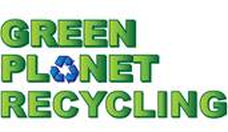The Benefits of Professional Power Washing for Windows
When it comes to cleaning the exterior of our homes, power washing has gained significant popularity. However, it is important to consider the risks involved, especially when attempting to power wash windows without the necessary experience. While you may have witnessed others power washing windows, it does not automatically mean that it is a task you should undertake. Improper execution can lead to broken windows, shattered glass, and potential damage to items inside your home. To ensure a safe and effective cleaning process, it is advisable to rely on the expertise of professional power washers. Looking for a professional service? CONTACT...

